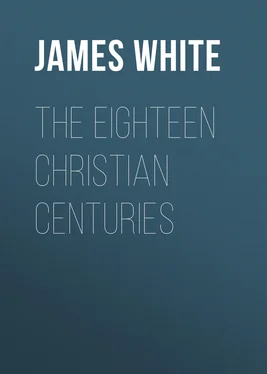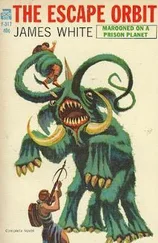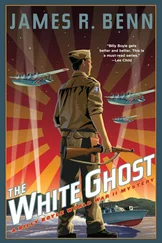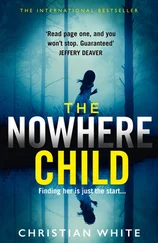James White - The Eighteen Christian Centuries
Здесь есть возможность читать онлайн «James White - The Eighteen Christian Centuries» — ознакомительный отрывок электронной книги совершенно бесплатно, а после прочтения отрывка купить полную версию. В некоторых случаях можно слушать аудио, скачать через торрент в формате fb2 и присутствует краткое содержание. Жанр: foreign_prose, История, foreign_edu, foreign_antique, на английском языке. Описание произведения, (предисловие) а так же отзывы посетителей доступны на портале библиотеки ЛибКат.
- Название:The Eighteen Christian Centuries
- Автор:
- Жанр:
- Год:неизвестен
- ISBN:нет данных
- Рейтинг книги:4 / 5. Голосов: 1
-
Избранное:Добавить в избранное
- Отзывы:
-
Ваша оценка:
- 80
- 1
- 2
- 3
- 4
- 5
The Eighteen Christian Centuries: краткое содержание, описание и аннотация
Предлагаем к чтению аннотацию, описание, краткое содержание или предисловие (зависит от того, что написал сам автор книги «The Eighteen Christian Centuries»). Если вы не нашли необходимую информацию о книге — напишите в комментариях, мы постараемся отыскать её.
The Eighteen Christian Centuries — читать онлайн ознакомительный отрывок
Ниже представлен текст книги, разбитый по страницам. Система сохранения места последней прочитанной страницы, позволяет с удобством читать онлайн бесплатно книгу «The Eighteen Christian Centuries», без необходимости каждый раз заново искать на чём Вы остановились. Поставьте закладку, и сможете в любой момент перейти на страницу, на которой закончили чтение.
Интервал:
Закладка:
James White
The Eighteen Christian Centuries
FIRST CENTURY
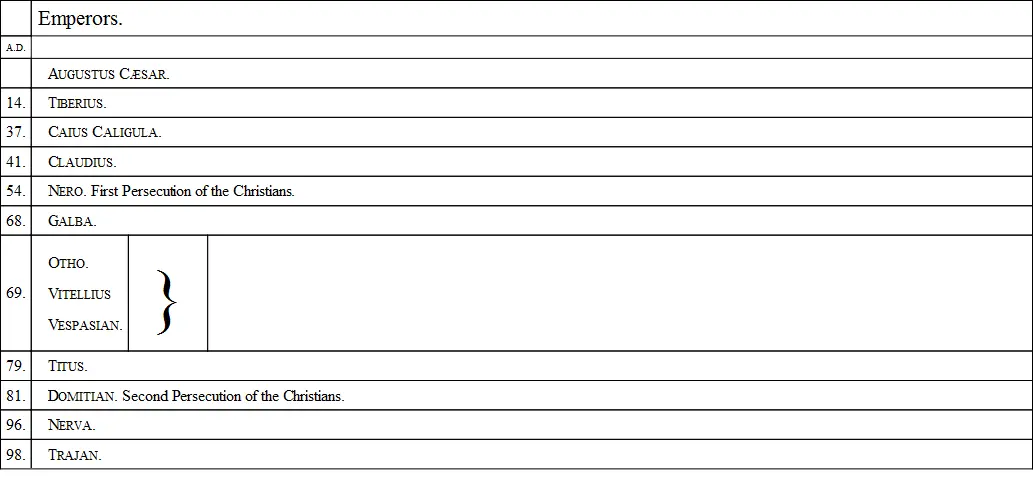
Livy, Ovid, Tibullus, Strabo, Columella, Quintus Curtius, Seneca, Lucan, Petronius, Silius Italicus, Pliny the Elder, Martial, Quinctilian, Tacitus.
Barnabas, Clement of Rome, Hermas, Ignatius, Polycarp.
THE FIRST CENTURY
Nobody disputes the usefulness of History. Many prefer it, even for interest and amusement, to the best novels and romances. But the extent of time over which it has stretched its range is appalling to the most laborious of readers. And as History is growing every day, and every nation is engaged in the manufacture of memorable events, it is pitiable to contemplate the fate of the historic student a hundred years hence. He is not allowed to cut off at one end, in proportion as he increases at the other. He is not allowed to forget Marlborough, in consideration of his accurate acquaintance with Wellington. His knowledge of the career of Napoleon is no excuse for ignorance of Julius Cæsar. All must be retained—victories, defeats—battles, sieges—knights in armour, soldiers in red; the charge at Marathon, the struggle at Inkermann—all these things, a thousand other things, at first apparently of no importance, but growing larger and larger as time develops their effects, till men look back in wonder that the acorn escaped their notice which has produced such a majestic oak,—a thousand other things still, for a moment rising in apparently irresistible power, and dying off apparently without cause, must be folded up in niches of the memory, ready to be brought forth when needed, and yet room be left for the future. And who can pretend to be qualified for so great a work? Most of us confess to rather dim recollections of things occurring in our own time,—in our own country—in our own parish; and some, contemplating the vast expanse of human history, its innumerable windings and perplexing variations, are inclined to give it up in despair, and have a sulky sort of gratification in determining to know nothing, since they cannot know all. All kings, they say, are pretty much alike, and whether he is called John in England, or Louis in France, doesn’t make much difference. Nobles also are as similar as possible, and peoples are everywhere the same. Now, this, you see, though it ambitiously pretends to be ignorance, is, in fact, something infinitely worse. It is false knowledge. It might be very injurious to liberty, to honour, and to religion itself, if this wretched idea were to become common, for where would be the inducement to noble endeavour? to reform of abuses? to purity of life? Kings and nobles and peoples are not everywhere the same. They are not even like each other, or like themselves in the same land at different periods. They are in a perpetual series, not only of change, but of contrast. They are “variable as the sea,”—calm and turbulent, brilliant and dark by turns. And it is this which gives us the only chance of attaining clearness and distinctness in our historic views. It is by dissimilarities that things are individualized: now, how pleasant it would be if we could simplify and strengthen our recollections of different times, by getting personal portraits, as it were, of the various centuries, so as to escape the danger of confounding their dress or features. It would be impossible in that case to mistake the Spanish hat and feather of the sixteenth century for the steel helmet and closed vizor of the fourteenth. We should be able, in the same way, to distinguish between the modes of thought and principles of action of the early ages, and those of the present time. We should be able to point out anachronisms of feeling and manners if they occurred in the course of our reading, as well as of dress and language. It is surely worth while, therefore, to make an attempt to individualize the centuries, not by affixing to them any arbitrary marks of one’s own, but by taking notice of the distinguishing quality they possess, and grouping round that, as a centre, the incidents which either produce this characteristic or are produced by it. What should we call the present century, for instance? We should at once name it the Century of Invention. The great war with Napoleon ending in 1815, exciting so many passions, and calling forth such energy, was but the natural introduction to the wider efforts and amazing progress of the succeeding forty years. Battles and bulletins, alliances and quarrels, ceased, but the intellect aroused by the struggle dashed into other channels. Commerce spread its humanizing influences over hitherto closed and unexplored regions; the steamboat and railway began their wondrous career. The lightning was trained to be our courier in the electric telegraph, and the sun took our likenesses in the daguerreotype. How changed this century is in all its attributes and tendencies from its predecessor, let any man judge for himself, who compares the reigns of our first Hanoverian kings with that of our gracious queen.
In nothing, indeed, is the course of European history so remarkable as in the immense differences which intervals of a few years introduce. In the old monarchies of Asia, time and the world seem almost to stand still. The Indian, the Arab, the Chinese of a thousand years ago, wore the same clothes, thought the same thoughts, and led the same life as his successor of to-day. But with us the whole character of a people is changed in a lifetime. In a few years we are whirled out of all our associations. Names perhaps remain unaltered, but the inner life is different; modes of living, states of education, religious sentiments, great national events, foreign wars, or deep internal struggles—all leave such ineffaceable marks on the history of certain periods, that their influence can be traced through all the particulars of the time. The art of printing can be followed, on its first introduction, into the recesses of private life, as well as in the intercourse of nations. The Reformation of religion so entirely altered the relations which the states of the world bore to each other, that it may be said to have put a limit between old history and new, so that human character itself received a new development; and actions, both public and private, were regulated by principles hitherto unknown.
In one respect all the past centuries are alike,—that they have done their part towards the formation of this. We bear the impress, at this hour, of the great thoughts and high aspirations, the struggles, and even the crimes, of our ancestral ages; and yet they have no greater resemblance to the present, except in the unchangeable characteristics of human nature itself, than the remotest forefathers in a long line of ancestry, whose likenesses hang in the galleries of our hereditary nobles, bear to the existing owner of title and estate. The ancestor who fought in the wars of the Roses has a very different expression and dress from the other ancestor who cheated and lied (politically, of course) in the days of the early Georges. Yet from both the present proprietor is descended. He retains the somewhat rusty armour on an ostentatious nail in the hall, and the somewhat insincere memoirs in a secret drawer in the library, and we cannot deny that he is the joint production of the courage of the warrior and the duplicity of the statesman; anxious to defend what he believes to be the right, like the supporter of York or Lancaster—but trammelled by the ties of party, like the patriot of Sir Robert Walpole.
If we could affix to each century as characteristic a presentment as those portraits do of the steel-clad hero of Towton, or the be-wigged, be-buckled courtier of George the Second, our object would be gained. We should see a whole history in a glance at a century’s face. If it were peculiarly marked by nature or accident, so much the more easy would it be to recognise the likeness. If the century was a warlike, quarrelsome century, and had scars across its brow; if it was a learned, plodding century, and wore spectacles on nose; if it was a frivolous, gay century, and simpered forever behind bouquets of flowers, or tripped on fantastic toe with a jewelled rapier at its side, there would be no mistaking the resemblance; there would also be no chance of confusing the actions: the legal century would not fight, the dancing century would not depose its king.
Читать дальшеИнтервал:
Закладка:
Похожие книги на «The Eighteen Christian Centuries»
Представляем Вашему вниманию похожие книги на «The Eighteen Christian Centuries» списком для выбора. Мы отобрали схожую по названию и смыслу литературу в надежде предоставить читателям больше вариантов отыскать новые, интересные, ещё непрочитанные произведения.
Обсуждение, отзывы о книге «The Eighteen Christian Centuries» и просто собственные мнения читателей. Оставьте ваши комментарии, напишите, что Вы думаете о произведении, его смысле или главных героях. Укажите что конкретно понравилось, а что нет, и почему Вы так считаете.
